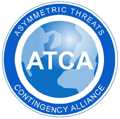
Olympic Torch: China's Power
Projection and India
Implications for the US, Japan and Allies
Tibet, Nepal, Arunachal and Burma
Fault Lines
London, UK - 10th April 2008, 09:26 GMT
Dear ATCA Colleagues
[Please note that the views presented by individual contributors
are not necessarily representative of the views of ATCA, which is neutral.
ATCA conducts collective Socratic dialogue on global opportunities and threats.]
It is important to understand the underlying reasons -- and
geo-political implications -- for the vehement protests that have taken
place in regard to the China Olympic torch relay in Athens, Istanbul, St
Petersburg, London, Paris and now San Francisco. China's power projection
strategy merits a vital Socratic dialogue and we are grateful to the distinguished
ATCA Contributor, Dr Harsh Pant, from the Department of Defence Studies,
King's College London, for his submission, "China's Power Projection
and India -- Implications for the US, Japan and Allies -- Tibet, Nepal,
Arunachal and Burma Fault Lines." Dr Pant writes:
Dear DK and Colleagues
Re: China's Power Projection and India -- Implications for the US, Japan
and Allies -- Tibet, Nepal, Arunachal and Burma Fault Lines
Last month China announced that its military budget for 2008 will increase
by 17.6 percent to about USD 58.8 billion. This is not really surprising
as it follows a 17.8 percent increase in 2007 and double-digit increases
in China's annual defence outlays most years in the last two decades. But
what is causing concern in Asia and beyond is the opacity that seems to
surround China's military build-up, with an emerging consensus that Beijing's
real military spending is at least double the announced figure. The official
figures of the Chinese government do not include the cost of new weapon
purchases, research or other big-ticket items for China's highly secretive
military and as a result, the real figure may be much higher than the revealed
amount. From Washington to Tokyo, from Brussels to Canberra, calls are rising
for China to be more open about the intentions behind this dramatic pace
of spending increase and scope of its military capabilities.
[CONTINUES]
[ATCA Membership]
Warm regards
Harsh Pant
Dr Harsh V Pant teaches at King's College London in the Department of Defence
Studies. He is also an Associate with the King's Centre for Science and
Security and lectures at the UK Defence Academy. He joined King's after
finishing his doctorate at the University of Notre Dame (USA). He holds
a BA (Hons) from the University of Delhi and MA and M Phil degrees from
Jawaharlal Nehru University in New Delhi (India). His current research is
focussed on Asia-Pacific security and defence issues. He has been published
on these issues by a number of academic journals and other publications
across the world including the Royal United Services Institute (RUSI) Journal,
Georgetown Journal of International Affairs, Asia-Pacific Review, Asian
Survey, Armed Forces and Society, Middle East Quarterly, Strategic Analysis
etc. He is also involved in consultancy work with organisations such as
Oxford Analytica, Power and Interest News Report, and South Asia Strategic
Stability Unit.
[ENDS]
To reflect further on this, please click here
and read views as well as respond directly within the online forum.
We welcome your thoughts, observations and views. Thank you.
Best wishes
ATCA: The Asymmetric Threats
Contingency Alliance is a philanthropic expert initiative founded
in 2001 to resolve complex global challenges through collective
Socratic dialogue and joint executive action to build a wisdom
based global economy. Adhering to the doctrine of non-violence,
ATCA addresses asymmetric threats and social opportunities arising
from climate chaos and the environment; radical poverty and microfinance;
geo-politics and energy; organised crime & extremism; advanced
technologies -- bio, info, nano, robo & AI; demographic skews
and resource shortages; pandemics; financial systems and systemic
risk; as well as transhumanism and ethics. Present membership
of ATCA is by invitation only and has over 5,000 distinguished
members from over 120 countries: including 1,000 Parliamentarians;
1,500 Chairmen and CEOs of corporations; 1,000 Heads of NGOs;
750 Directors at Academic Centres of Excellence; 500 Inventors
and Original thinkers; as well as 250 Editors-in-Chief of major
media.
The Philanthropia, founded in 2005, brings together over
1,000 leading individual and private philanthropists, family offices,
foundations, private banks, non-governmental organisations and
specialist advisors to address complex global challenges such
as countering climate chaos, reducing radical poverty and developing
global leadership for the younger generation through the appliance
of science and technology, leveraging acumen and finance, as well
as encouraging collaboration with a strong commitment to ethics.
Philanthropia emphasises multi-faith spiritual values: introspection,
healthy living and ecology. Philanthropia Targets: Countering
climate chaos and carbon neutrality; Eliminating radical poverty
-- through micro-credit schemes, empowerment of women and more
responsible capitalism; Leadership for the Younger Generation;
and Corporate and social responsibility.
Intelligence Unit | mi2g | tel +44 (0) 20 7712 1782 fax +44
(0) 20 7712 1501 | internet www.mi2g.net
mi2g: Winner of the Queen's Award for Enterprise in the category
of Innovation
|

